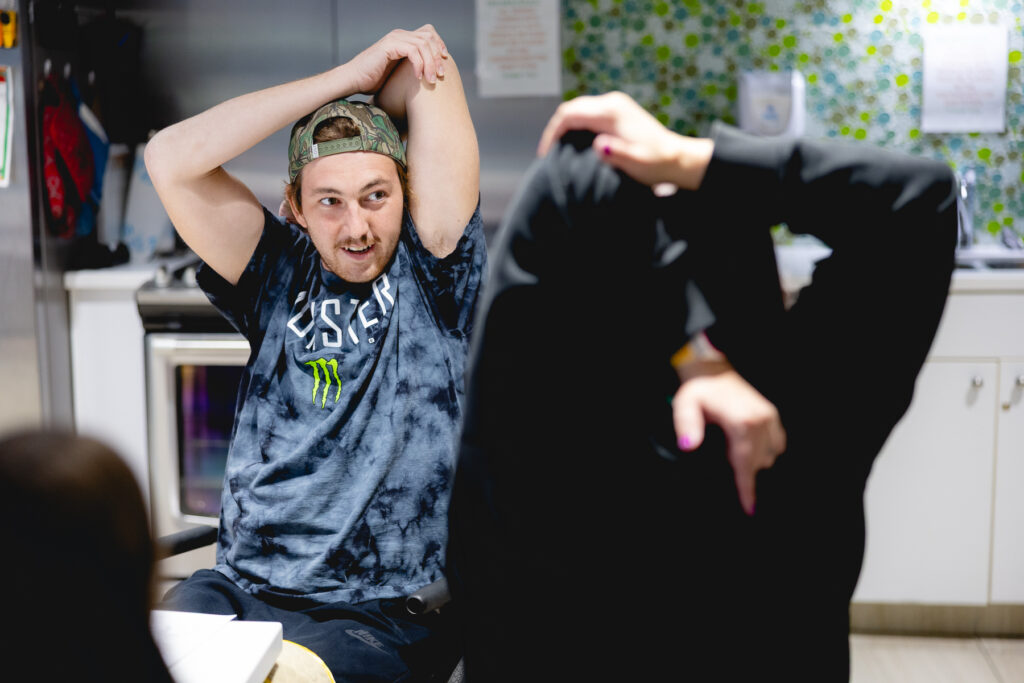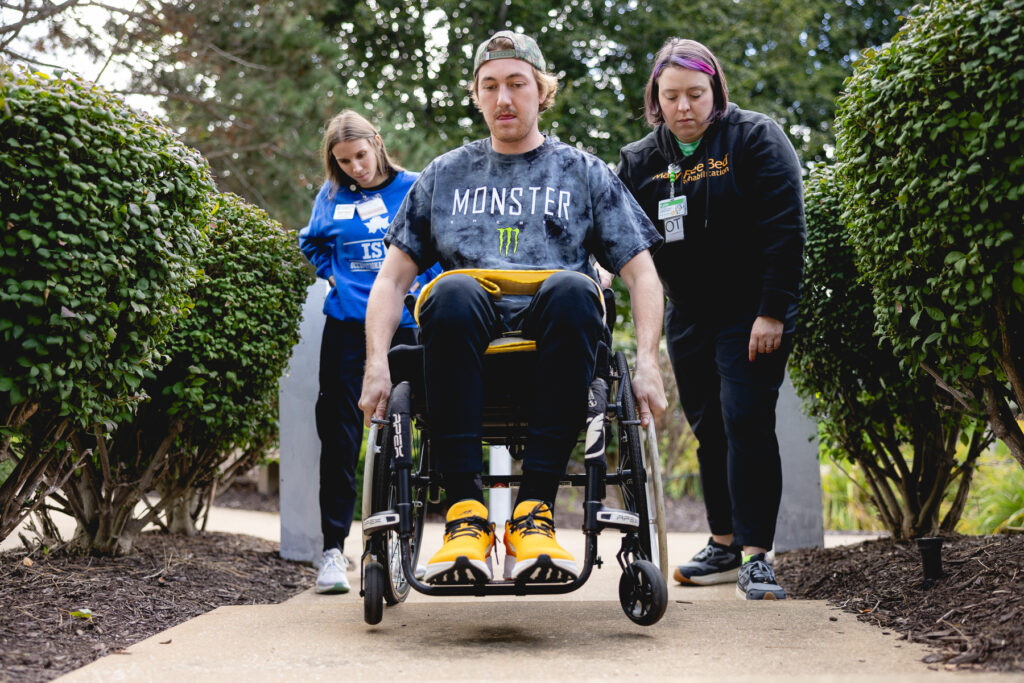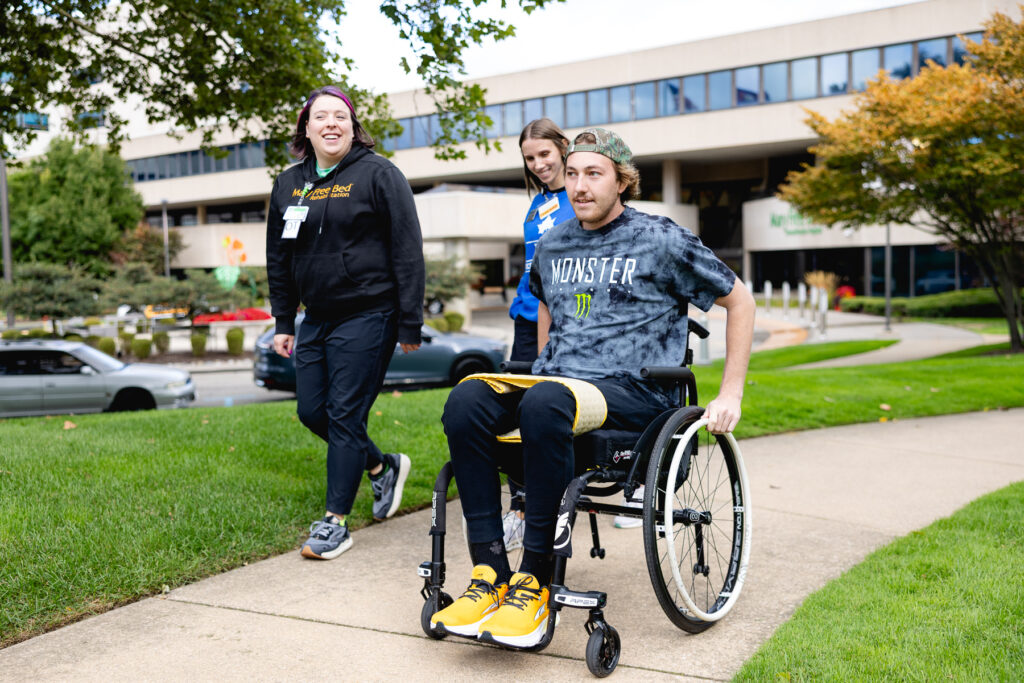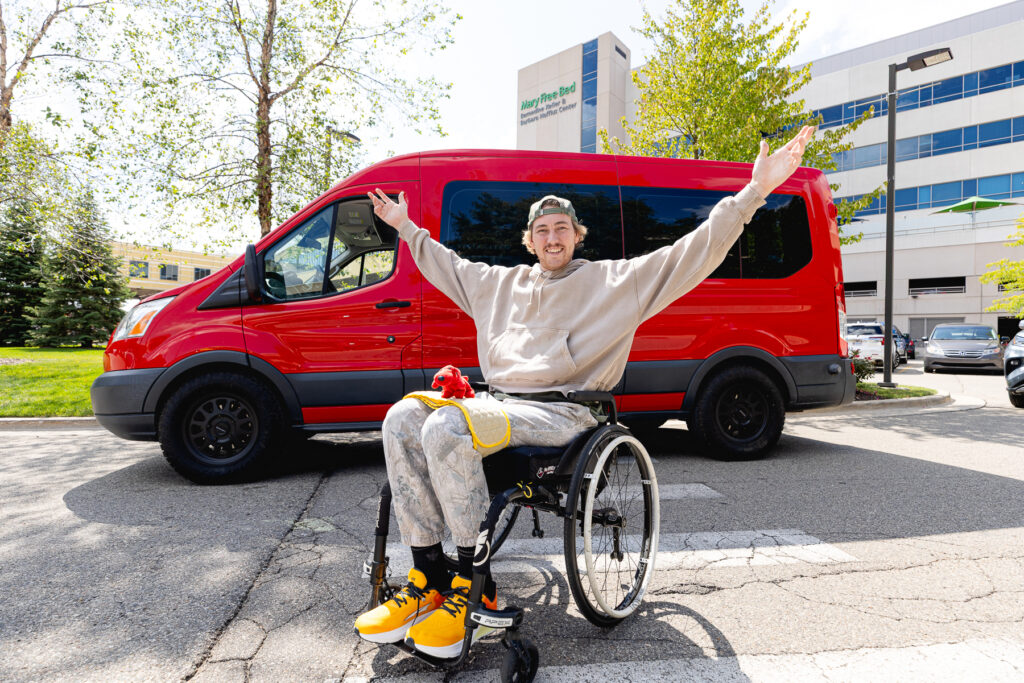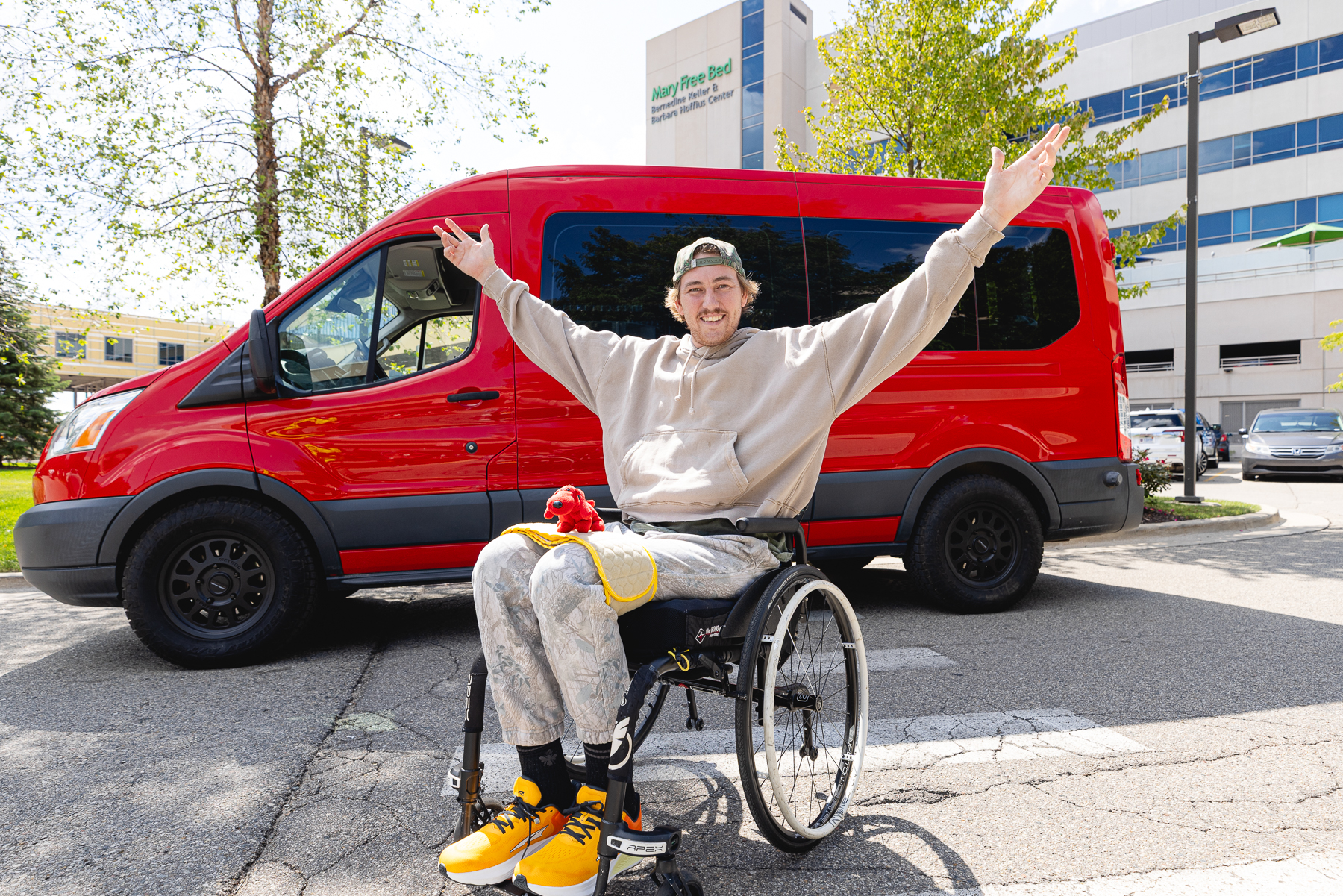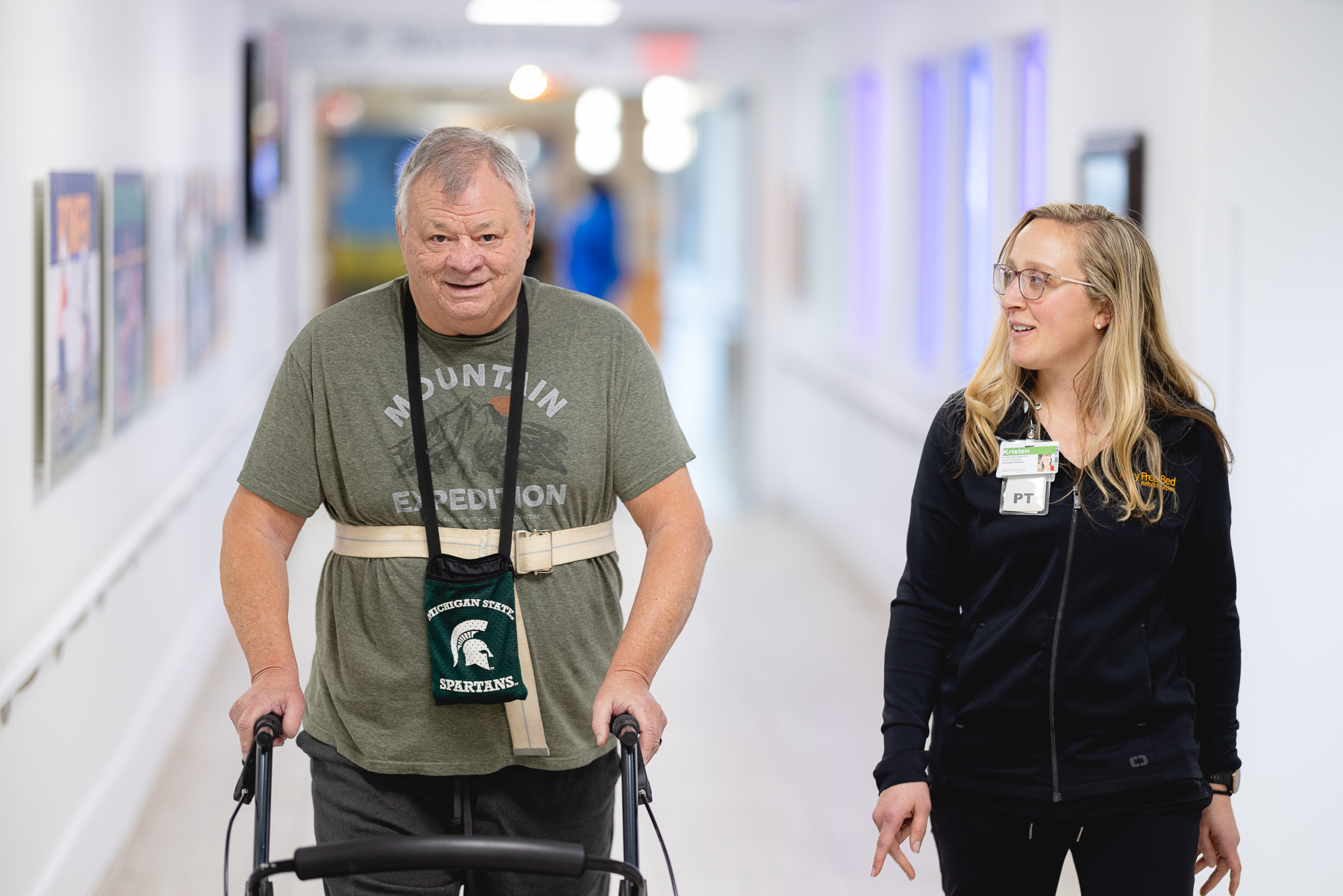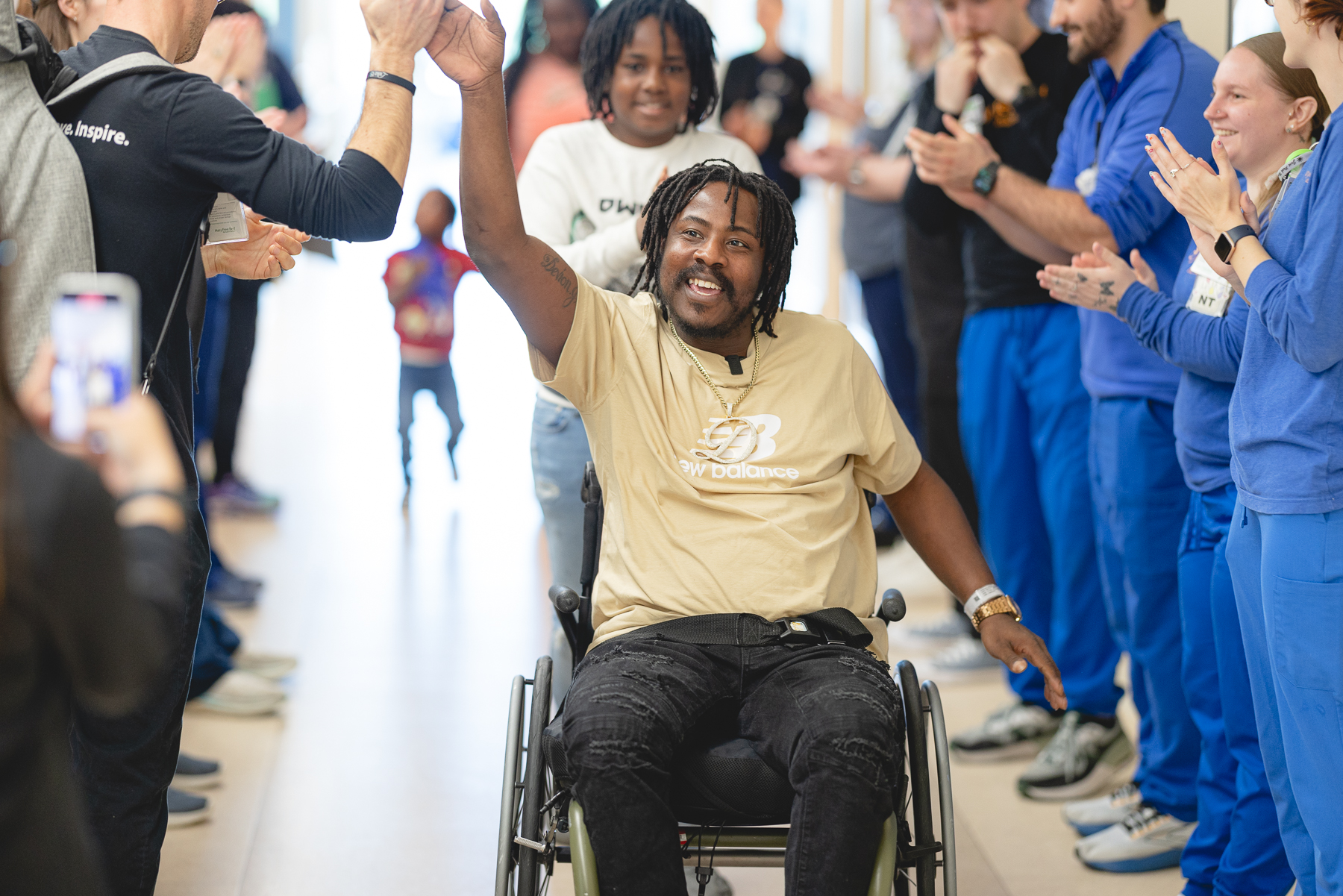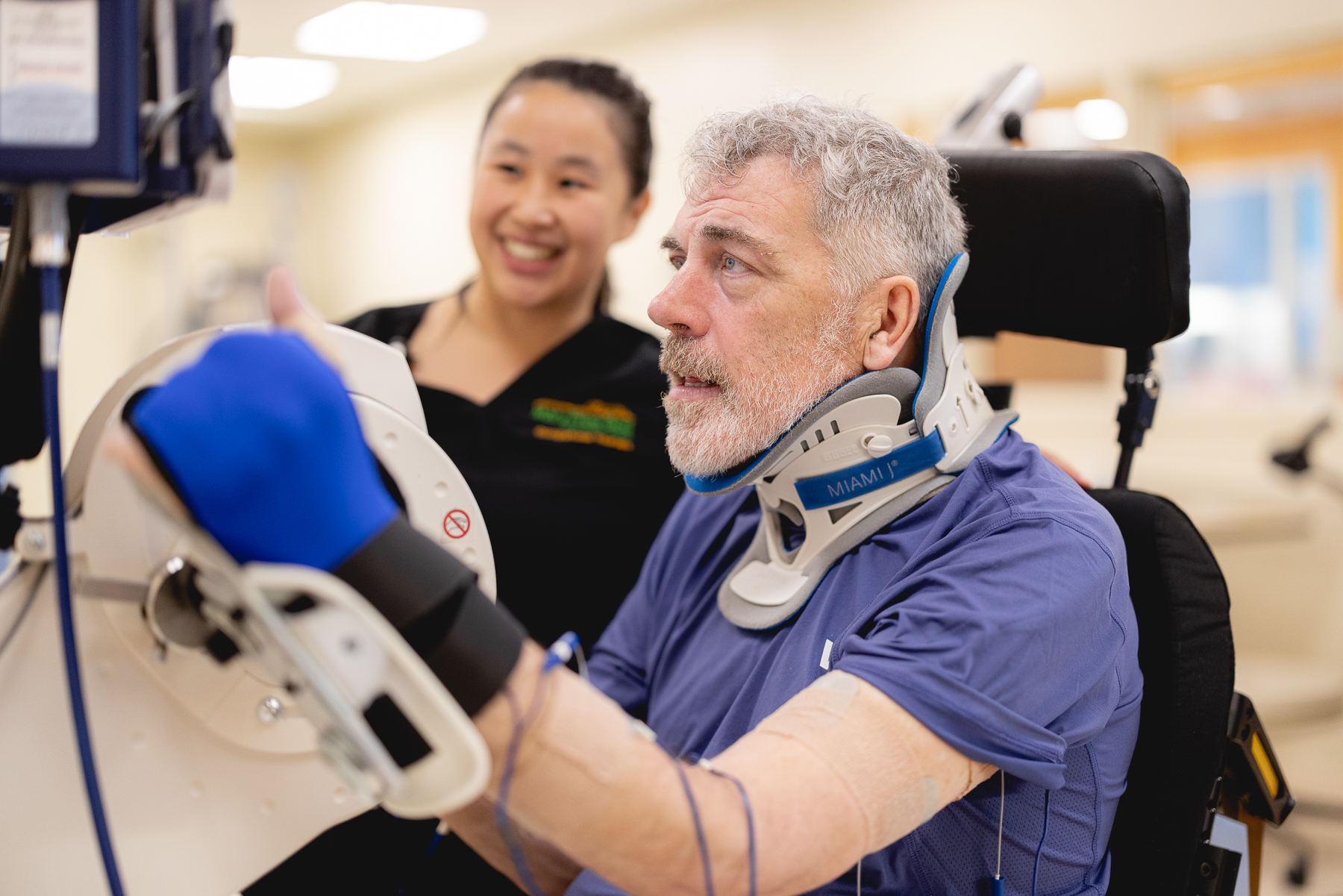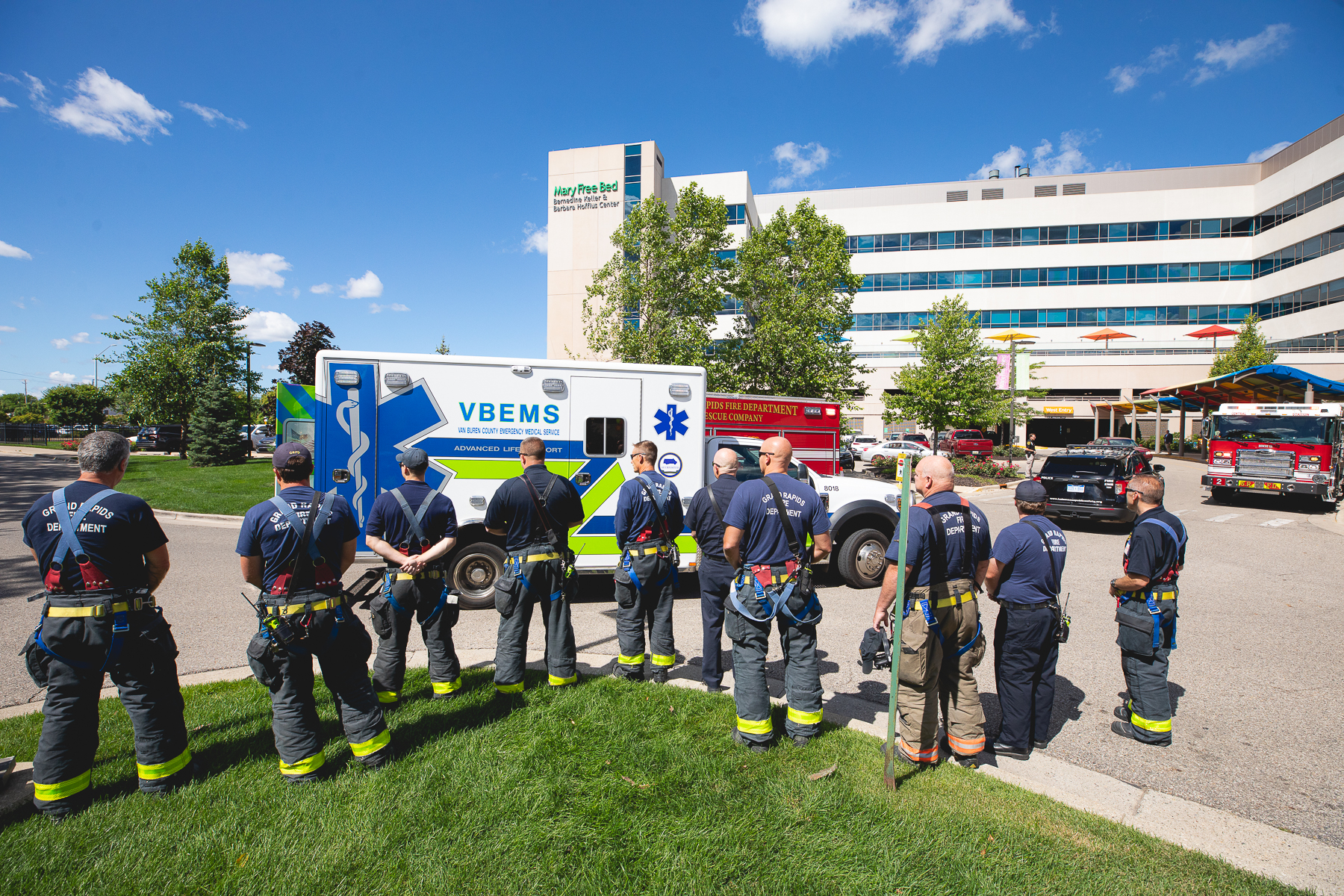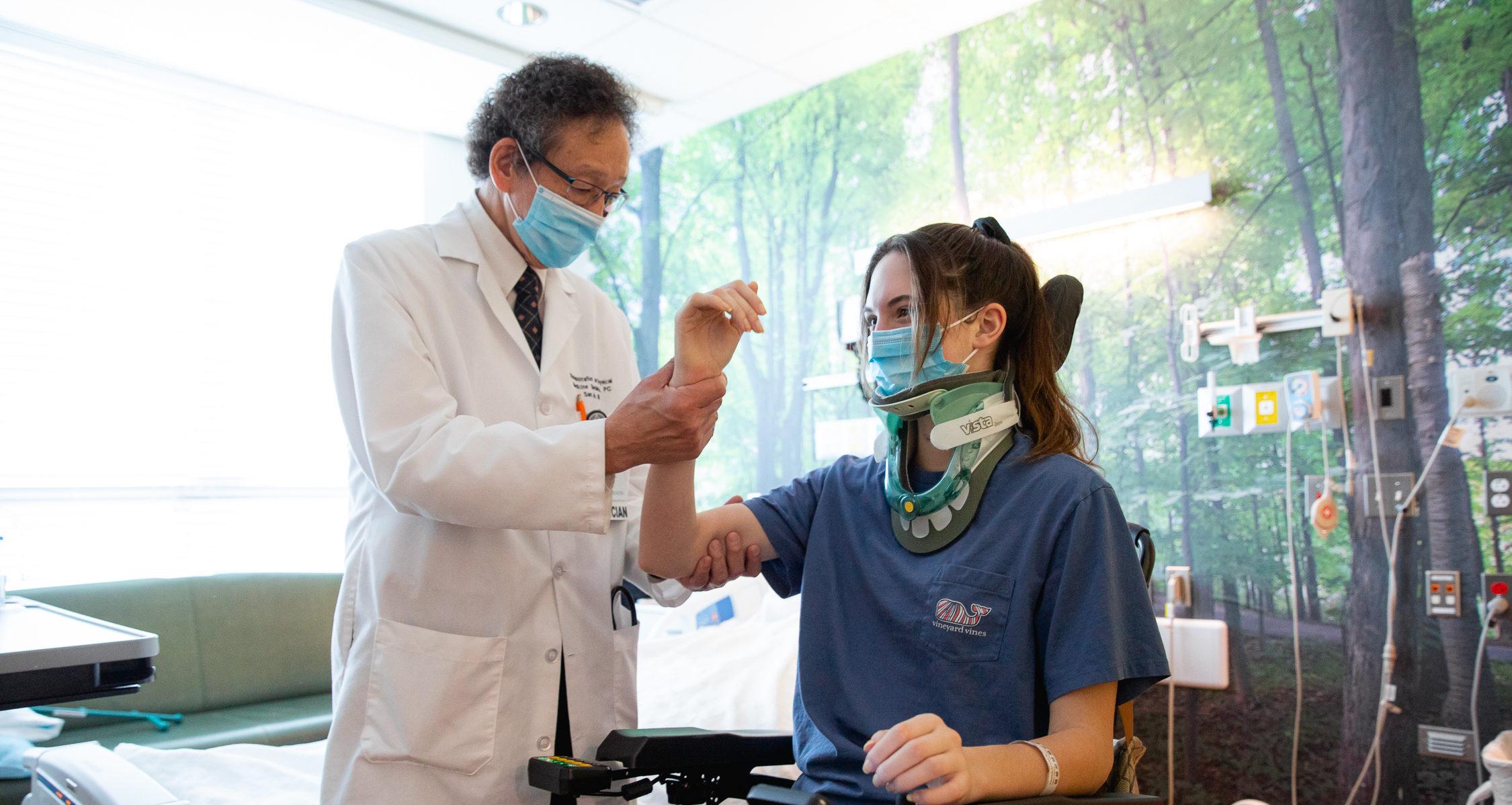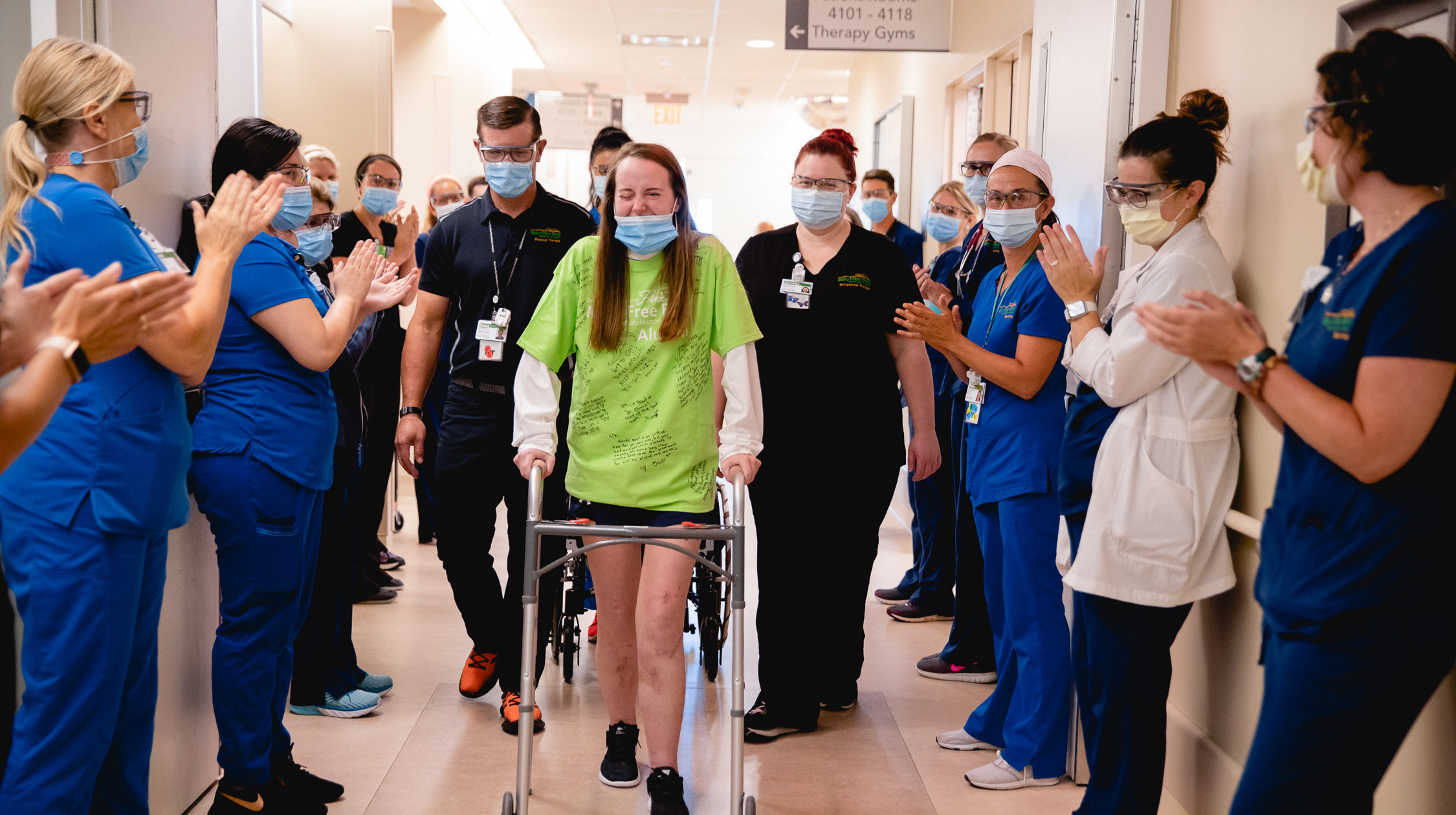Jason Norwood’s chill demeanor rolls off him like waves. He’s quick to smile and eager to talk about motocross, the sport he’s loved since he was a kid. Recently, he’s been sharing a new story: how his life has changed after a spinal cord injury. It’s another kind of challenge with a different track, but Jason’s still determined to succeed.
Tenacity at the Track
At 27 years old, Jason’s spent more than half his life racing competitive motocross, an extreme sport with an equally tight knit community. He’s been racing since he was 4, driven by the thrill of the next race and the next jump.
Jason’s dad, Pat, has always been his number one fan.
When he was a kid, Jason’s family traded in their weekends for time at the track, creating the foundation for a rock-solid support system that was instrumental in Jason’s SCI rehabilitation journey.
What is a Spinal Cord Injury?
A spinal cord injury (SCI) occurs when the spinal cord is damaged from an accident or a fall. The spinal cord is the bundle of nerves and fibers along the spine that sends signals to the brain. When the spinal cord is injured, it can result in changes to or loss of sensation, movement or bodily functions below the injury site. Many people with SCIs experience weakness throughout the body, pain or pressure in the head or neck, and numbness or tingling in the hands or feet.
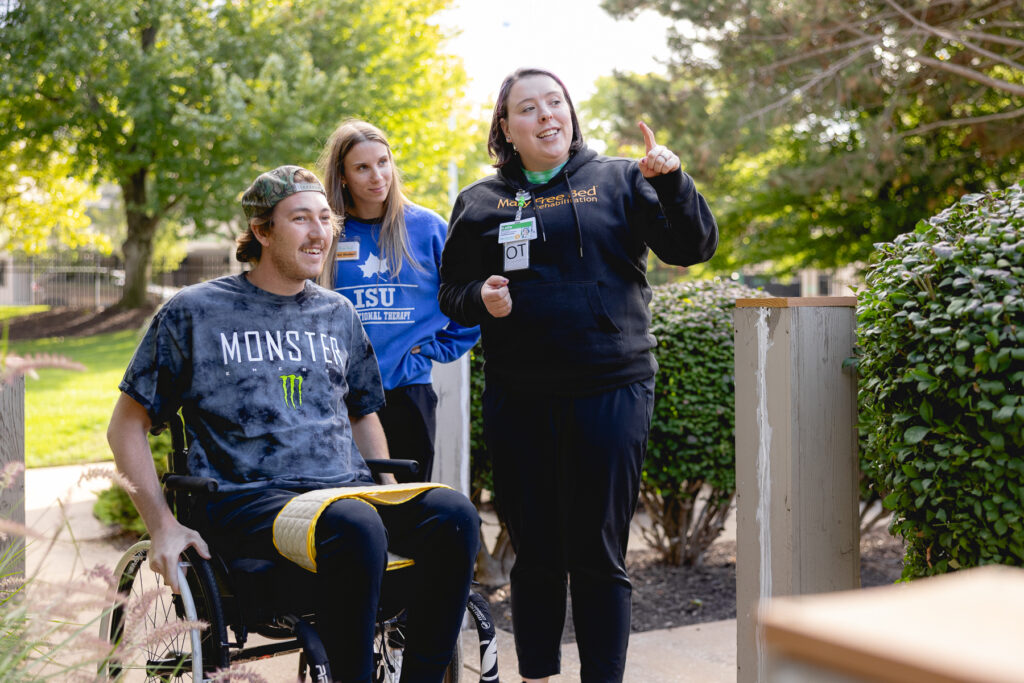
One Jump, One Split Second
Last summer, Jason was practicing motocross at friend’s house. He hit a jump and instantly knew something was wrong.
“Even when I was in the air, I was thinking to myself, ‘Oh, man. This is gonna be a rough one,” Jason recalled. When he landed, he was unconscious. His friend called 911, and Jason was airlifted to the Level 1 Trauma Center at Hurley Hospital in Flint, Michigan, where he underwent a six-and-a-half-hour emergency surgery.
He was transferred to the ICU at University of Michigan Hospital in Ann Arbor, Michigan, for intensive recovery. When he first received news of his SCI diagnosis, he was angry, but his loved ones gave him the solid perspective that powered his recovery:
This is your new life. You can only stay in this position for so long and be angry. I ran with that.”
Jason also credits his friends for keeping him “up and running” during his acute care stay.
Destination Rehab for SCI
Jason’s sister, Paige, works in the medical field, so while Jason focused on recovering in acute care, she expanded her search for destination rehab hospitals. Even though it was two hours away from their home in Howell, Michigan, they decided to “Ask for Mary” and made the drive to Grand Rapids for expert care and exceptional SCI outcomes. The Adult Inpatient Spinal Cord Injury Rehabilitation Program at Mary Free Bed takes on more spinal cord injury rehabilitation patients than any other hospital in the state.
“We honestly took a little bit of a leap coming all the way out here, but it was nothing less of the best decision possible,” Jason reflected.
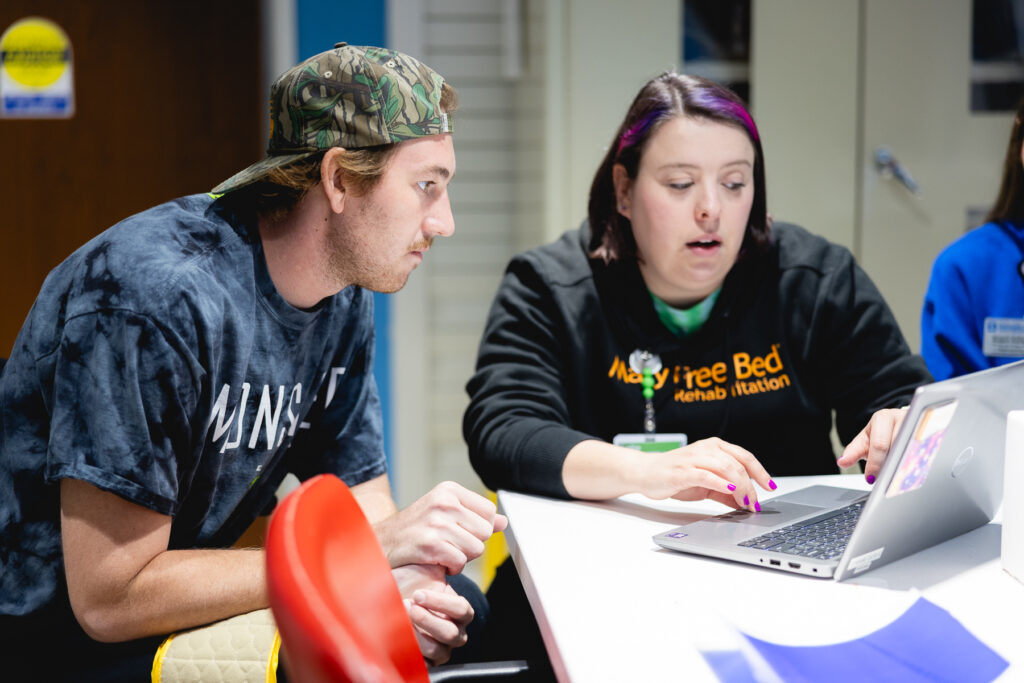
Recovery Regimen
Before his accident, Jason’s motocross training schedule was rigorous. When he wasn’t thinking about his next race, he was contemplating how he could keep his body in top shape. In addition to practicing on his bike three days a week, he sweated it out in hot yoga to stay limber and keep his joints healthy. He ran to keep up his stamina. He was used to long days filled with intense physical exertion.
The therapy schedule in the Inpatient Spinal Cord Injury Rehabilitation Program is rigorous as well, with multiple therapies each day, at least five days a week; it’s not unlike training for an extreme sport. In addition to a full range of therapies, the Inpatient Spinal Cord Injury Rehabilitation Program provides 24/7 medical care.
“They pushed me every day,” Jason recalled. “They’ve dealt with many other people with my exact same injury. With their knowledge, we accomplished a lot in 34 days.”
“They built me to what I am.”
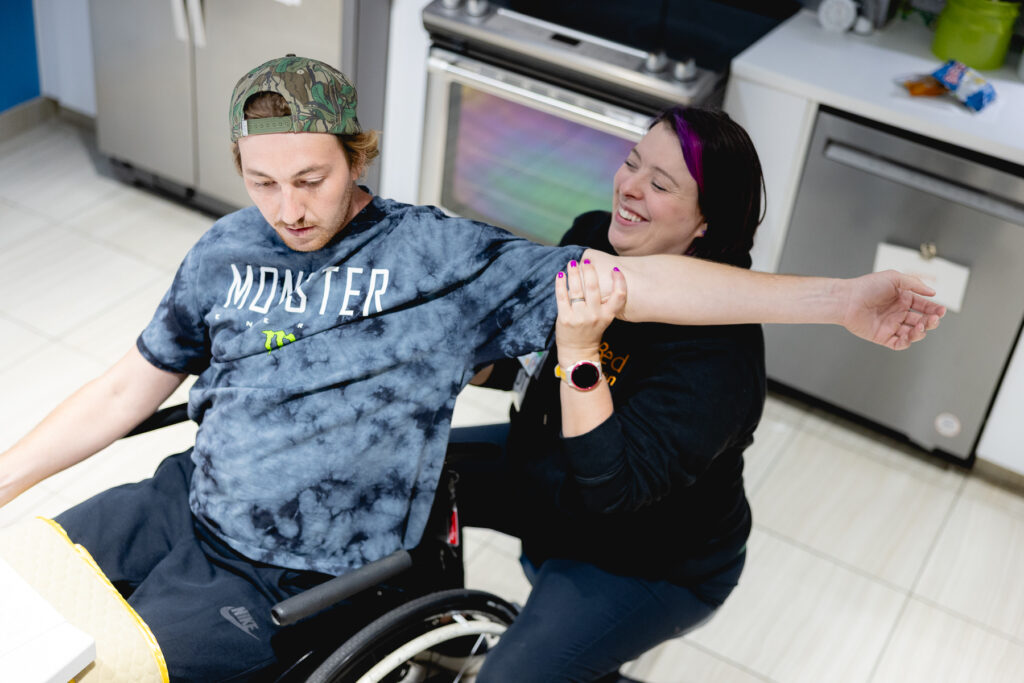
SCI Recovery: A New Kind of Training
When Jason arrived at Mary Free Bed, he was just beginning to use a wheelchair. Within a month, he relearned everyday life skills like getting dressed while simultaneously adjusting to life as a wheelchair user.
The Mary Free Bed specialty SCI program is customized for each patient. Interdisciplinary therapy teams work together to incorporate a patient’s hobbies and interests. In Jason’s case, he learned how to pop a new kind of wheelie. With the help of his physical therapist, Jason learned how to wheelie so he could navigate curbs and stairs in his wheelchair.
In many ways, recovery is another form of training—both are fueled by drive and determination. “It’s very similar. I can tell that’s what feeds me, this progression, itching for it and reaching for it,” Jason said.
New Thrills
Through it all, Jason’s still a laid-back guy and a thrill seeker at heart. Since he’s gotten the hang of using his wheelchair, he’s already looking for his next adventure.
“He gets more strength every single day; the opportunities get larger,” Pat said.
Lucky for Jason and hundreds of other athletes, in addition to specialty SCI rehab, Mary Free Bed facilitates a nationally recognized Wheelchair And Adaptive Sports Program. From adaptive pickleball to wheelchair lacrosse, the Mary Free Bed Wheelchair And Adaptive Sports Program has a sport for everyone and every season.
Jason’s excited to try adaptive hand cycling in the spring and he’s hoping to try adaptive skiing this winter.
“He’s pretty driven,” Pat said. “Whatever we’re gonna get into, he’s gonna try and win.”
For Jason, sports have always been the source of his confidence and drive.
“It keeps me motivated,” he said. “It keeps me stoked.”
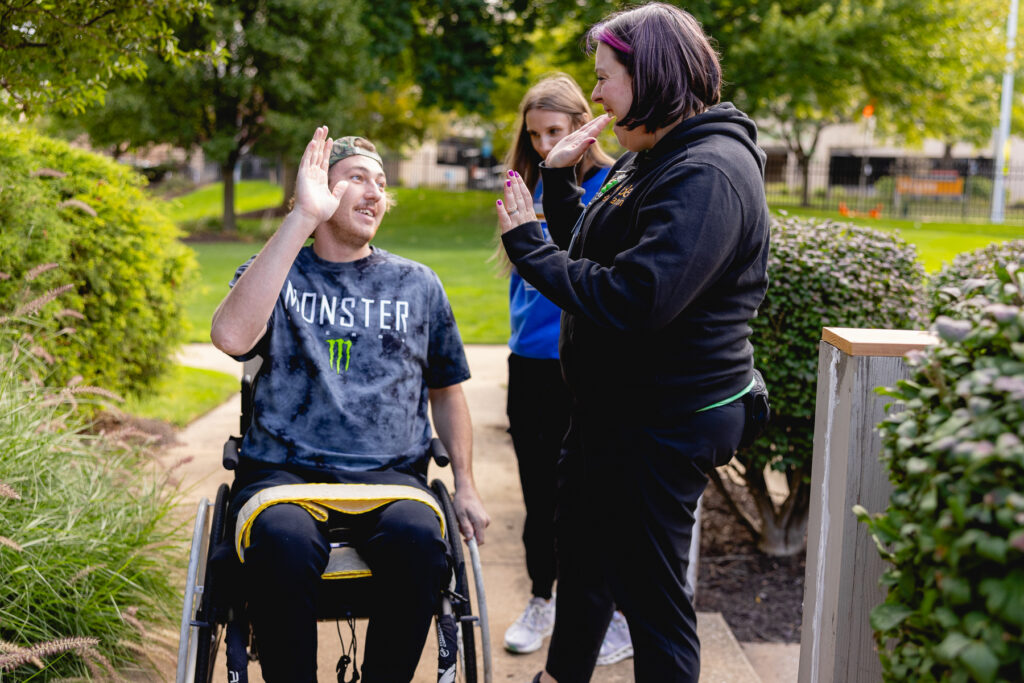
A Future in Motion
Jason’s story is one of drive, grit and momentum—the same qualities that define Mary Free Bed’s nationally recognized Spinal Cord Injury Rehabilitation Program. As a Michigan Spinal Cord Injury Model System, Mary Free Bed is one of just a handful of hospitals in the country recognized for excellence in SCI research, outcomes and patient-centered care.
But recovery doesn’t stop when you leave inpatient care. Our continuum of care continues through Mary Free Bed Outpatient Therapy and Wheelchair and Adaptive Sports Programs—where patients turn their progress into power and rediscover the freedom of movement, competition and community.
From inpatient rehabilitation to adaptive athletics, Mary Free Bed offers one of the most comprehensive spinal cord injury rehabilitation programs in the nation. Patients travel from across Michigan and beyond for one reason: our recovery goes the extra mile.
At Mary Free Bed, the journey isn’t about what you’ve lost—it’s about maximizing your potential and discovering everything you can still do or do differently.
Keep rolling. Keep happy. Keep going.
If you or your loved one want to learn more about the Mary Free Bed continuum of care, you can click here to learn more and Ask for Mary.
